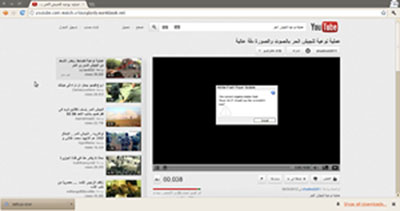AUCKLAND (Reporters Without Borders / Pacific Media Watch): Reporters Without Borders (RSF) have named Syria, China, Iran, Bahrain and Vietnam as “State Enemies of the Internet” in a new report.
March 12 marked the World day against Cyber-Censorship, and the well-regarded NGO released a report focusing on online surveillance.
The report looks at the ways governments are increasingly using technology that monitors online activity and intercepts electronic communication in order to arrest journalists, citizen-journalists and dissidents. In all the five countries identified the situation has exacerbated lately. China is described as "probably the world’s most sophisticated censorship system".
The Chinese surveillance system has been dubbed "the Great Firewall of China" due to its massive size. During the Communist Party Congress last November, the firewall was tightened even further.
It is still possible to circumvent ‘the Great Firewall’ using proxy servers, such as VPN or Tor, but they are little used by ordinary Chinese. According to the Chinese government there are 564 million internet users in the country, making it the biggest internet country in terms of sheer numbers.
The small Middle Eastern Gulf state of Bahrain has experienced an increase in Internet surveillance after the Arab spring riots began two years ago. Religious and political content that does not harmonise with the regime’s views is excluded from the internet through the use of an advanced filtering system..jpg)
One method often used by the regime is sending out e-mails with a malware attachment. If installed, it can access all files, record Skype conversations, and use keystroke logging to capture passwords.
Moreover, some of these emails contain topics such as human rights and media freedom as well as appearing to be sent from real journalists, in order to trick regime critics into opening them.
Iran’s version of the internet is nicknamed "Halal Internet". After 10 years of talk, it looks like Iran is on way to create a "parallel internet", with a high connection but fully monitored and censored.
The plans have been accelerated after a series of cyber-attacks on Iran’s nuclear installations last year. The government in the Islamic republic plans to reduce the speed and increase the costs of subscribing to the international internet, which will leave most Iranians with few choices but to subscribe to the "Halal Internet" of Iran.
The internet situation in Syria has stepped up as the civil war has worsened.
When Syrian journalist Taymour Karim was apprehended on 26 December 2011, he was shown more than 1000 pages of conversation transcripts and files that the government had gathered from his Skype conversations with sources. A similar method to that of Bahrain, the Syrian regime at one point set up a fake YouTube site which promised to show opposition videos.
The site required users to enter their log-in and password in order to register comments. 
In Vietnam the government has deliberately held the speed and quality of the internet to a minimum. The Communist Party controls all of the country’s 16 internet providers, and is thus able to enforce their censoring regime upon the internet.
Providers block access to sites that displease the authorities. Several newspapers, domestic and foreign blogs, and sites that provide content on political opposition and human rights are blocked.
In the new Reporters Without Borders report, five companies identified as "Corporate Enemies" are named. They are Amesys, Blue Coat, Gamma International, Hacking Team and Trovicor.
No Pacific countries features on the list of state enemies of the internet. Around 180 so-called "netizens" worldwide are currently in prison for providing news and information online.
Read the full RSF report here.
This work is licensed under a Creative Commons Attribution-NonCommercial 3.0 New Zealand Licence.




